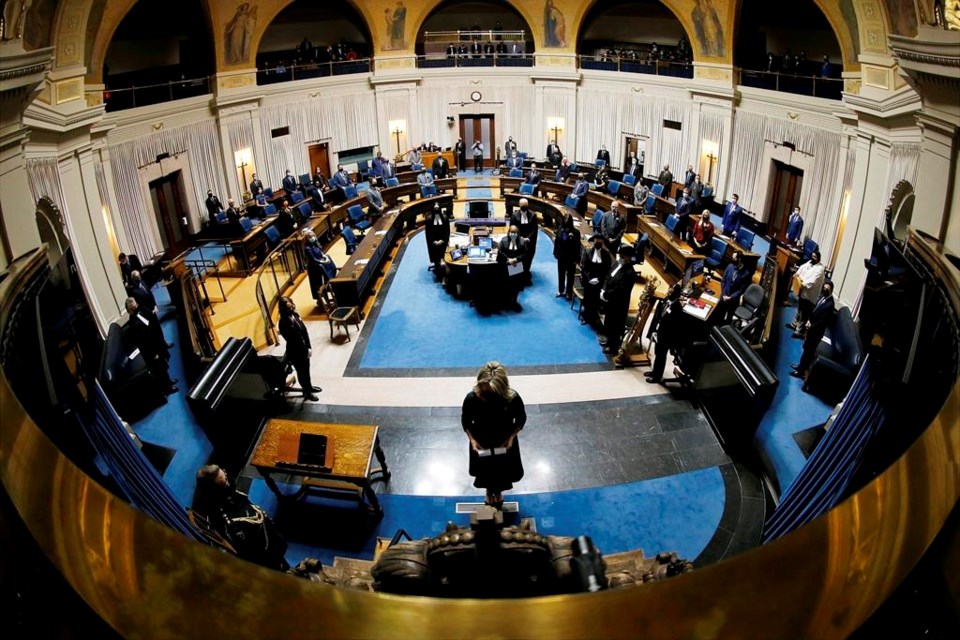WINNIPEG — The Manitoba government plans to crack down on fake explicit photos and videos, and to prevent people convicted of serious crimes from changing their names.
A bill introduced in the legislature Thursday would expand a law that already protects people whose intimate photos or videos are shared without their consent.
The law, which allows victims to sue the perpetrator and receive support in getting the images taken down, is to be expanded to include images created or altered electronically, sometimes called deepfakes.
"It may feel easy or simple to do — to create an intimate image — but as soon as you distribute it, you are breaking the law and you need to be held accountable for that," Justice Minister Matt Wiebe said.
The issue of photos manipulated by artificial intelligence or computer software has grown in recent months.¬Ý
In January, fake AI-generated pornographic photos of pop singer Taylor Swift were shared on social media. Last year, a Winnipeg high school notified parents that altered photos of underage female students were –°¿∂ ”∆µ shared online.
"We are seeing a massive increase in reports coming in related to individuals using AI-generated apps to produce these fake intimate images," said Signy Arnason, associate executive director at the Canadian Centre for Child Protection, a national charity that combats child victimization and operates a tip line.
Eight provinces have enacted intimate image laws, but not all refer to altered or fake images. B.C. recently expanded its law to cover digitally altered or created images, while Prince Edward Island and Saskatchewan did so earlier.
Another crime-oriented bill introduced by Manitoba's NDP government Thursday would forbid people convicted of sex-related offences from legally changing their name, similar to existing laws in Saskatchewan and Alberta.
But unlike some other provinces, Manitoba's plan would allow the government to add other serious offences, such as murder, via future cabinet decisions.
"This legislation makes Manitoba a more hostile environment for serious, violent offenders," Government Services Minister Lisa Naylor said.
"If you're able to just change your name ... how does the next victim have any idea that you were the person that was charged with sexually assaulting someone's children?"
If the bill is passed into law, everyone who applies for a legal name change would have to undergo a criminal record check. If that check reveals a serious criminal offence, the application would be denied.
The Opposition Progressive Conservatives appeared supportive of both initiatives. The Tories gave notice in the legislature last week that they were planning to introduce two similar bills.
"We certainly want to make sure that Manitobans are protected," Tory justice critic Wayne Balcaen said.
This report by The Canadian Press was first published March 14, 2024.
Steve Lambert, The Canadian Press




